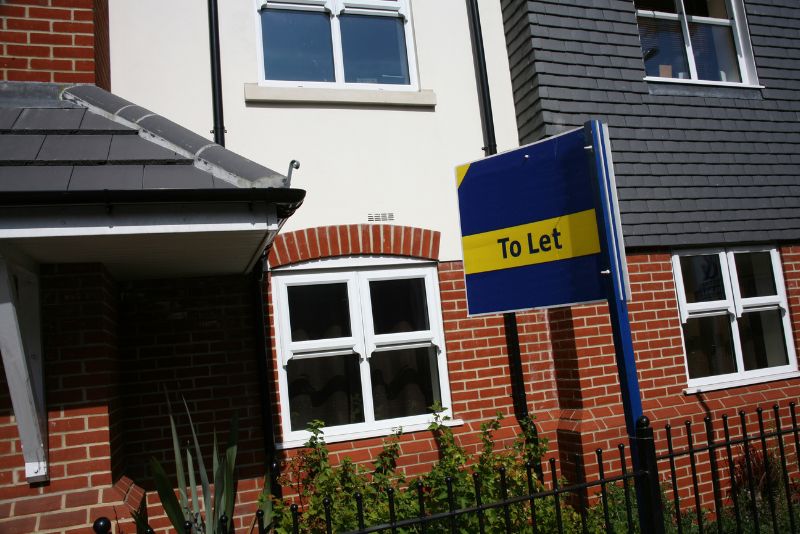Buy-to-let has long been a popular investment for those looking for an alternative to savings or stocks and shares, with many investors relying on property to supplement their income in retirement, alongside a traditional pension.
While it has been a difficult few years for landlords with a raft of tax and regulatory changes, there is no reason why buy-to-let shouldn’t be part of long-term investment planning – if investors do their research carefully and take advice.
We’ve all seen the headlines. There are many mainstream media articles out there talking about how the mounting costs-to-let are persuading some landlords to sell up. This could be a panic reaction, and it is understandable. Novice or accidental landlords may be worried that their properties are no longer profitable, or the property value will only decrease moving forwards. Unfortunately, these headlines may also be deterring new investors from becoming landlords, leading to the increasing shortfall of rental properties. But despite the challenges, the more experienced, or professional, landlords seem committed to buy-to-let.
As higher mortgage rates, along with the cost of EPC upgrades, cause further headaches, we look at the reasons why many are still choosing to invest in buy-to-let.
Buy-to-let and rising rents
While costs seem to be mounting, rents continue to rise. Recent research from property website Rightmove reveals that 42% of renters in 10 major UK cities were contacting letting agents to move out of city accommodation to cheaper locations. This statistic has increased quite significantly, from 28% in February 2020! Rising rents, along with increased living costs and lack of available homes to move into are forcing renters hands.
As some of the smaller/accidental landlords with properties in their own name come out of the market, the availability of rental property continues to shrink, further pushing up rents. The average rent in city centres was up 12% on last year, with demand more than doubling (up 125%) since February 2020.
As higher mortgage rates mean many first-time buyers are forced to rent for longer, the demand for rental properties shows no sign of diminishing, pushing rents up further.
Rising mortgage rates
It’s no secret that landlords are in for a payment shock when they remortgage this year, as rates have soared in recent months. Here’s another issue to consider: if a property is held in the landlord’s own name, it can now be more difficult to refinance due to stress tests used by lenders and, especially in London, the yields not fitting at higher loan-to-values.
Subsequently, there has been a significant increase in landlords using limited companies to purchase property rather than in their own name as this ownership structure can offer tax benefits as well as reduced stress levels. However, one downside of purchasing via a limited company is that mortgage rates tend to be higher than if a landlord buys in their own name.
A more stable future may result in some lower-priced mortgages over the coming weeks – but volatility is likely for a while! With so many changes afoot, obtaining the right advice from a whole-of-market mortgage broker is now more crucial than ever.

The current mortgage crisis – and what you need to consider
We know that landlords, whether accidental or via a limited company, typically look for two separate requirements to form a balanced portfolio – capital appreciation and income.
So, let’s address house prices first. Several house-price indices suggest that property price growth is slowing, with prices reducing in some areas. Nationwide Building Society reports that house prices were down 1.1 per cent year-on-year in February, their first annual decline since June 2020 and the weakest since November 2012. As a result, many portfolio investors are now poised ready and waiting for a bargain, or properties that fit their portfolio (a house in the same street where they already own property where they can add value, for example), before they take the plunge.
With an increase in the number of smaller landlords who hold properties in their own name deciding to sell because they are struggling to make a profit, there could be further opportunities for seasoned landlords looking to add to their portfolios.
We are also likely to see more flats and holiday lets come to market. Holiday lets are becoming more popular, but they require more manpower to service, so are not for everyone even though they can potentially offer good returns.

On the income side, it’s all about balance. Many of SPF’s clients are purchasing further out of London. Within London and the South East the rental return is often less in percentage terms but with a higher potential capital growth. This means that some landlords are balancing a purchase in London (with a lower immediate return but with higher potential gains), with a property outside of London (to obtain a higher yield).
Bucking this trend are houses in multiple occupation (known as ‘HMOs’ to the unfamiliar) and multi-unit blocks (MUBs), as these provide higher yields wherever they are. Naturally, a growing number of landlords are converting their properties into HMOs to generate stronger returns.
Looking for buy-to-let advice?
There’s no doubt about it, it’s a difficult time to buy. Much like A-Plan has the expertise in making sure you are effectively insured in your home, car or anything else, our in-house mortgage brokers, SPF, may be a good starting point for a conversation. Whether you are planning to be a first-time landlord hoping to land a bargain, or a more seasoned landlord with a portfolio of properties, it’s always a good idea to touch base with buy-to-let mortgage experts in the first instance. Find out more about SPF and get in touch with them here.
Whether you choose to rent out your own home, or buy-to-let, don’t forget to get in touch with your local A-Plan branch to confirm your change of circumstances – and ensure you have the right landlord insurance for your needs.

